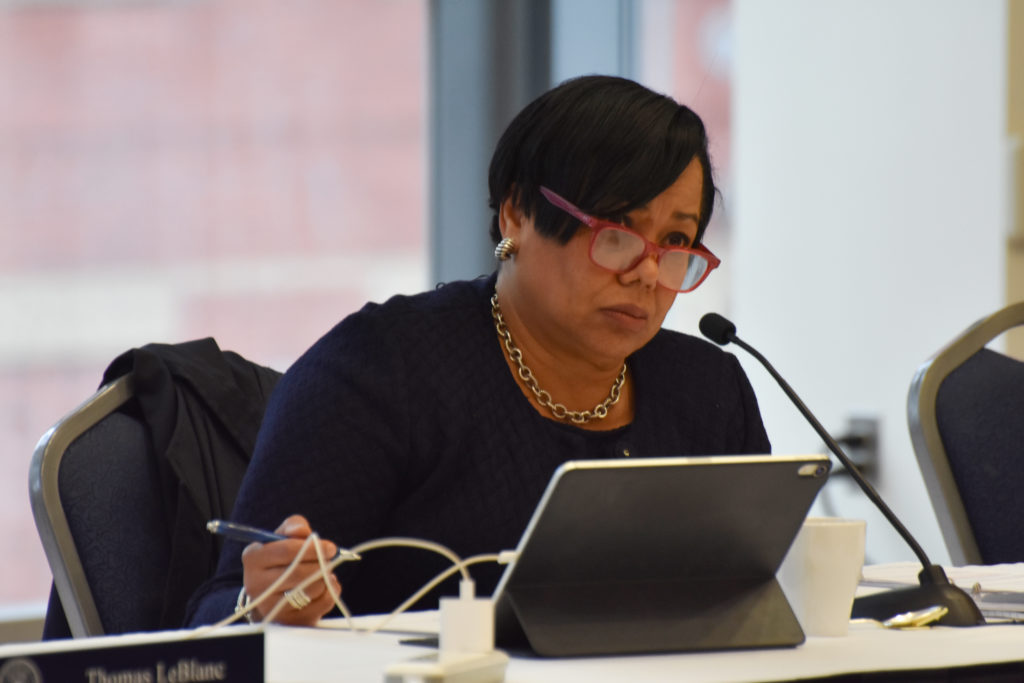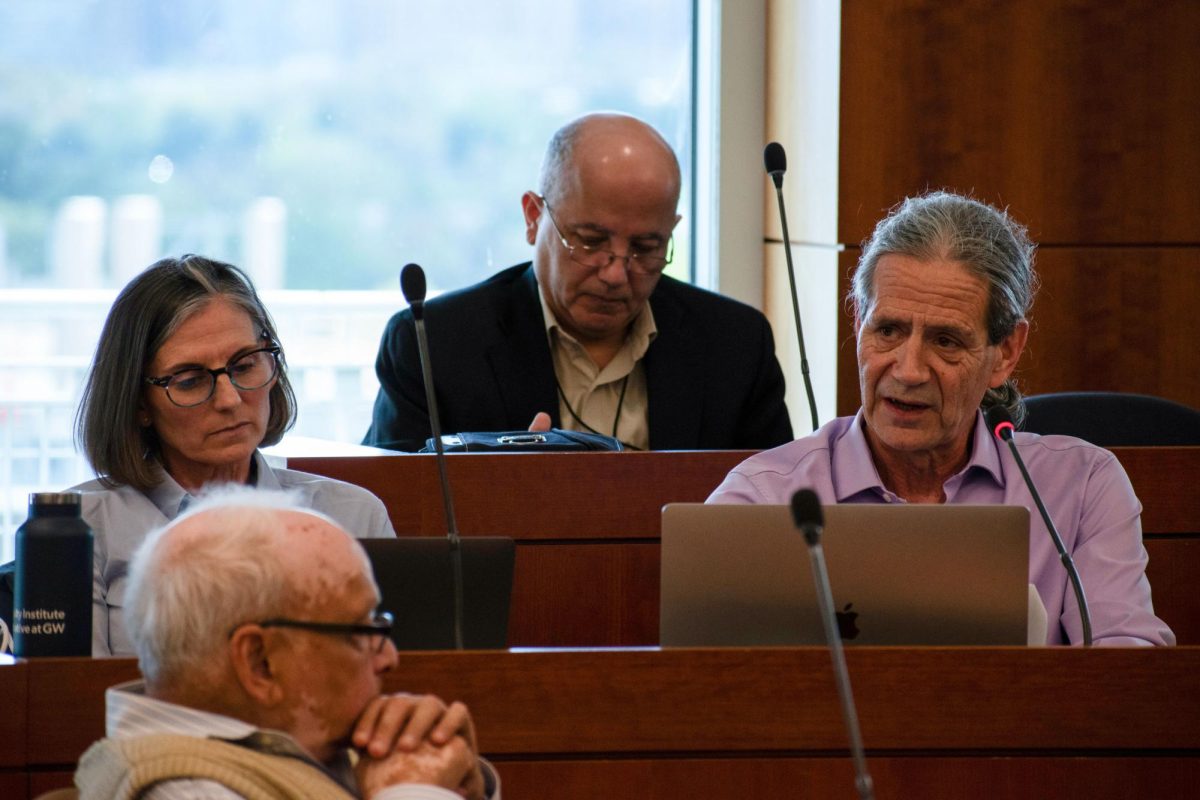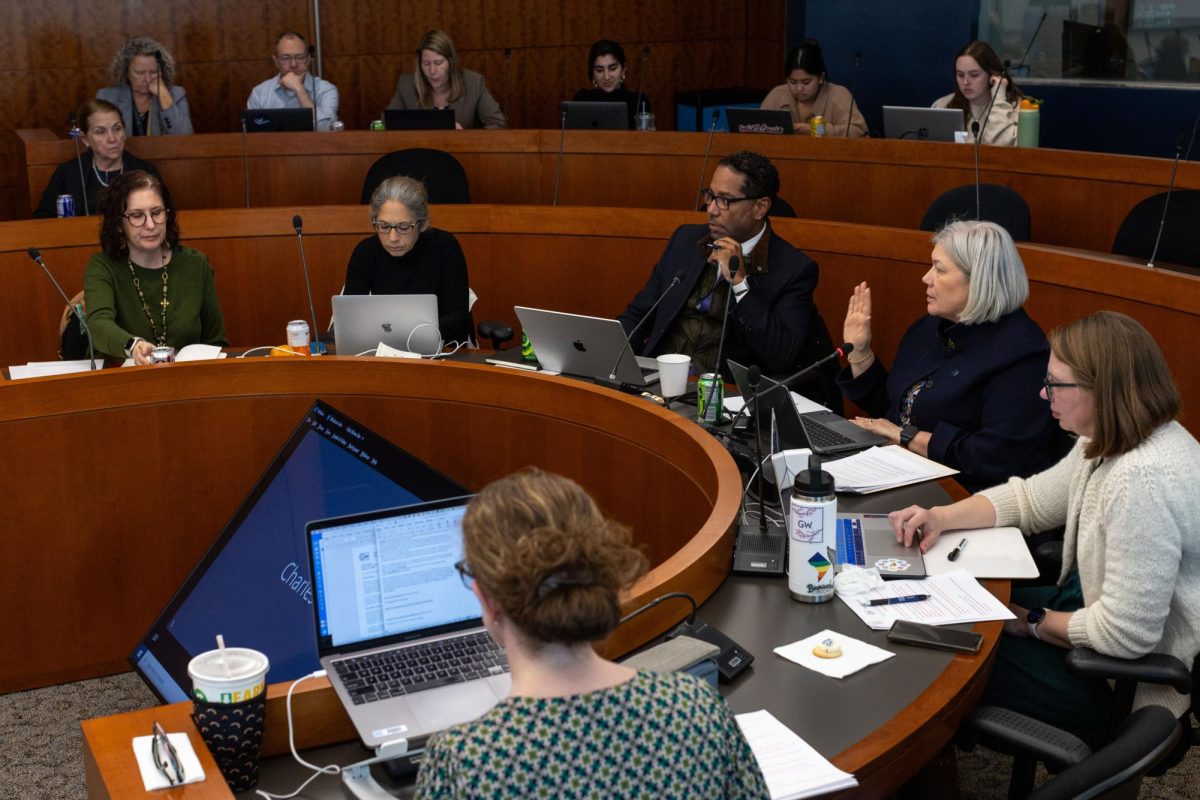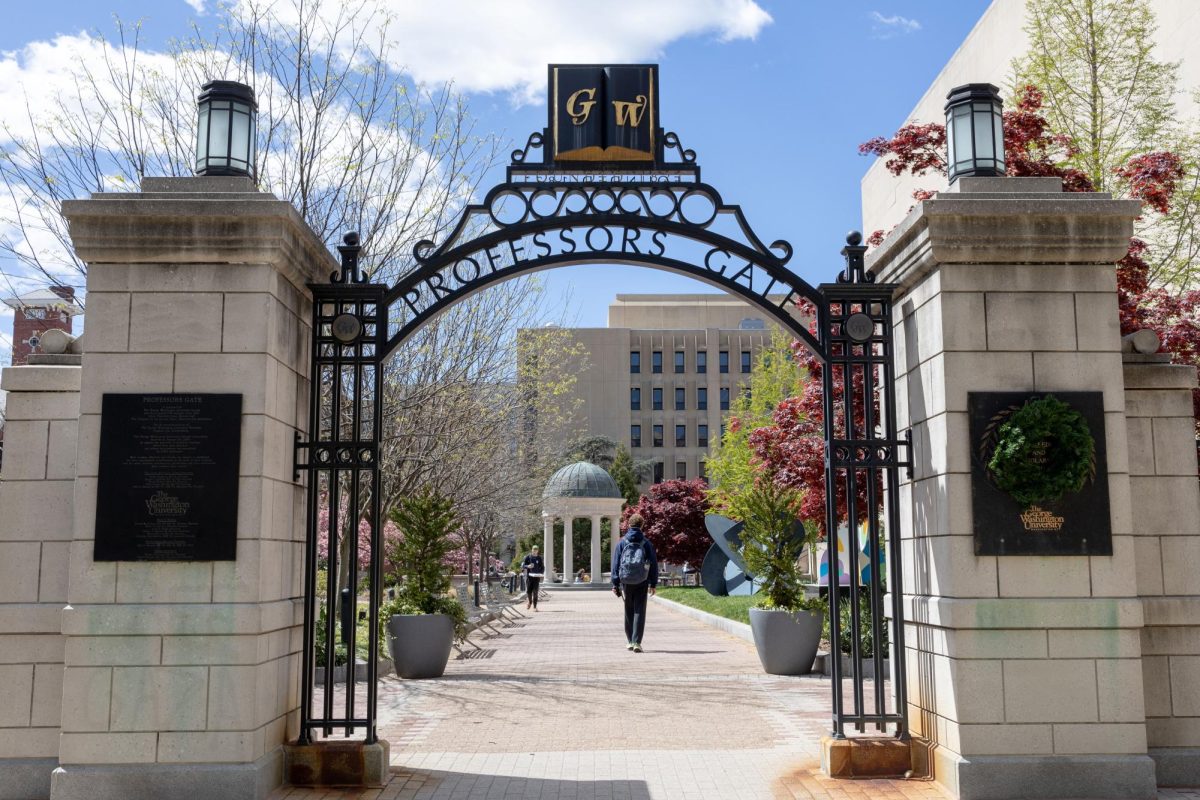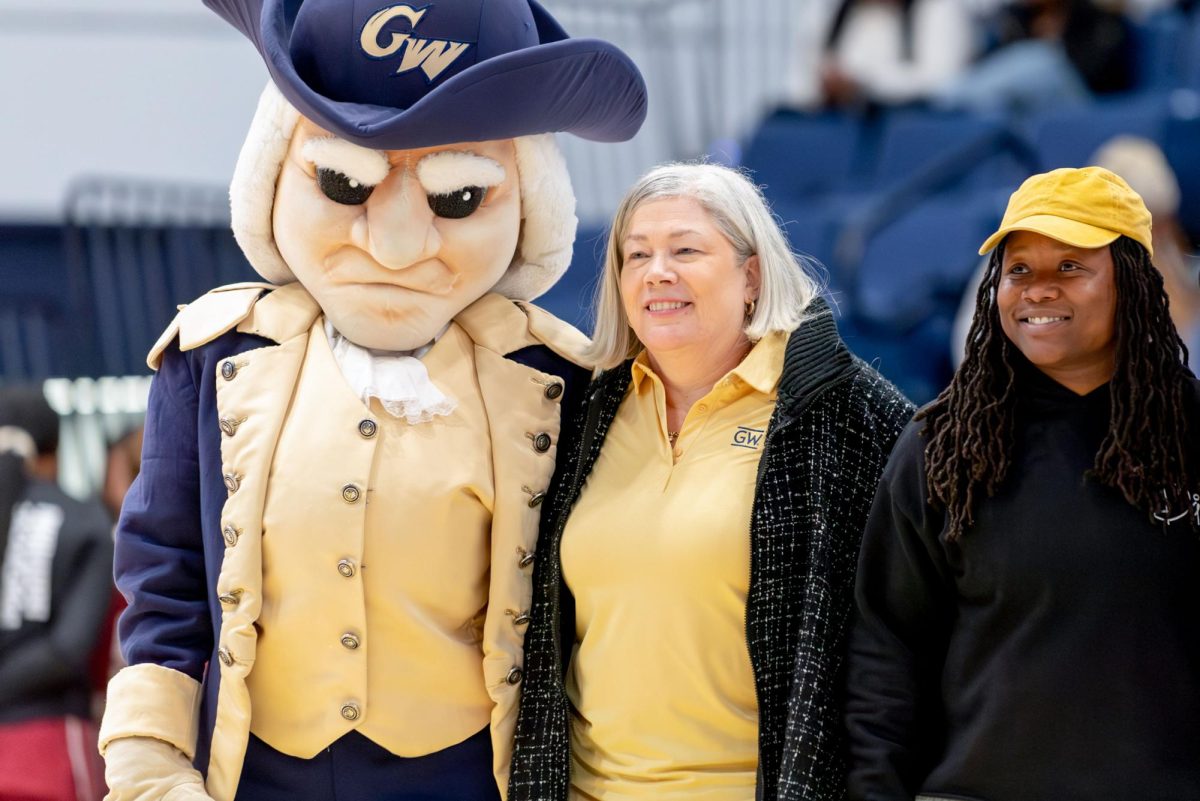Board of Trustees Chair Grace Speights and a group of faculty senators outlined and discussed their expectations for shared governance between trustees, faculty and the administration at the Faculty Senate meeting Friday.
Senators discussed a report on how to strengthen the future of shared governance at GW so trustees, faculty and administrators can reach a mutual understanding of how to collaborate during major University decisions. Speights said trustees spent the summer meeting with outside consultants to discuss how the University should approach shared governance following an email she sent in May, stating she had been “troubled” by some professors whose discourse did more to “foment discord” than contribute to civil dialogue.
Speights’ criticism in May came on the heels of University President Thomas Leblanc’s announcement that he would step down after one more year as president – a role that many faculty said failed to include professors in decisions like the 20/30 plan to increase STEM enrollment and a culture survey to assess institutional culture.
Faculty senators Shaista Khilji, Kim Roddis and Arthur Wilson presented the report on shared governance, which recommends establishing “clear and frequent” channels of communication between faculty, the Board and the administration and a “joint effort” toward the University’s internal operations, like the budget, strategic planning and the presidential search.
“We want to create buy-in and help GW engage in joint planning because joint thoughts and joint action are critical in our understanding of shared governance,” Khilji said at the meeting.
Khilji said faculty senators completed an earlier version of this report last year, sharing it with LeBlanc and former Provost Brian Blake last fall while emphasizing concerns about shared governance and University decision-making. Wilson said Blake took no further action in response to faculty’s concerns after October, and he shared the earlier report with Speights in May.
Khilji said she started work on the updated version this summer with Khilji and Roddis to lay the “groundwork” for a discussion on shared governance and its future at GW. She said the senate’s executive committee and standing committees added feedback to the report this August.
“We also agreed that this version should also articulate our understanding of shared governance based on the statements of government and colleges, and finally, it should operationalize to offer specific and concrete steps for moving forward,” she said.
Speights said the University has struggled to establish shared governance between trustees, faculty and the administration in recent years, and the Board is ready to commit to a “fresh start” to unite the three groups moving forward. She said the Board met with consultants from the Association of Governing Boards of Colleges and Universities and the American Association of University Professors this summer to discuss how GW should approach shared governance.
She said officials will continue formalizing a plan through town hall meetings, a survey and a task force co-chaired by trustees, faculty and administrators before the three groups reach an “understanding” about shared governance in May.
“There’s also been an issue of lack of transparency, and we understand that, and we have heard you,” Speights said. “The Board spent a lot of time over the summer thinking about the issue of shared governance and how we could move forward together – the three constituents – to make this an even better University, and the Board I can tell you is committed to doing that.”
Faculty said they were “encouraged” by Speights’ shared governance update, but some expressed concerns with Speight’s announcement of the selection of Mark Wrighton as the University’s interim president. Some senators said they were worried about how the University would build on its concept of shared governance after trustees decided to make the presidential decision without consulting professors.
Faculty previously voiced the need for more representation in the last presidential search because of a lack of diversity on the search committee in 2016. The senate unanimously passed a resolution last month to expand the faculty consultative committee that will advise trustees through the presidential search process.
Sarah Wagner, a faculty senator and a professor of anthropology, said while she appreciated Speights’ comments at the meeting, a “dissonance” exists between those comments and her failure to consult faculty prior to the selection of an interim president.
“We are excited for a new president, we are very encouraged by her words, but when they come out the other side of the mouth in which we’ve had no consultation of a really important decision, the implication might be it could possibly undercut the success of an incoming interim president, and we don’t want that,” she said.
Miriam Galston, a faculty senator and an associate professor of law, said faculty should instead give Speights the “benefit of the doubt” in the decision to choose an interim president because the Board has had to move forward during a pandemic with a replacement for LeBlanc. She said the Board needs to work on building its relationship with faculty, and as a result, spreading the decision before its announcement would have been “destructive.”
“I agree it doesn’t look good,” she said. “But I would like us to try and take a generous point of view that it’s not that she was trying to ignore shared governance.
Harald Griesshammer, a faculty senator and a professor of physics, said pausing the presidential search with an interim replacement will create more time for the University to resolve its issues with shared governance before finding a permanent leader. He said by the time the permanent president joins GW, the new administration won’t have to work on “two things at once” and define shared governance with an unfamiliar administration.
“I think the delay of the search for a president and prioritizing and understanding between the three columns of shared governance at this University – the faculty, the administration and the Board – makes a lot of sense, and I think this is the right document to start from,” he said.


